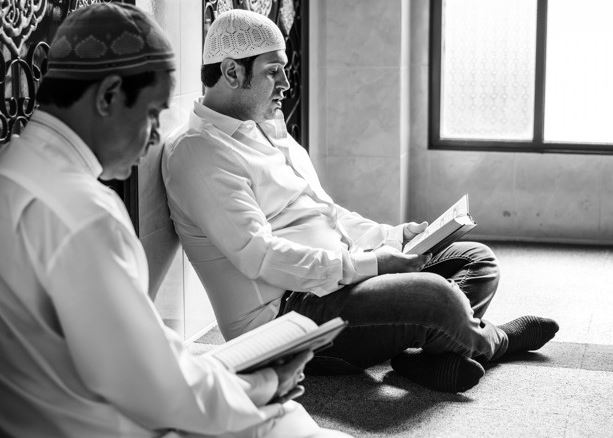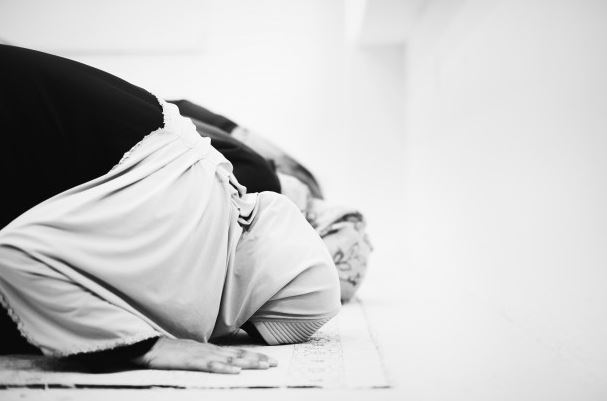12 Foods Good for Iftar for Gastric Patients
Having gastric problems during fasting? Here are the foods you can prepare when the month of Ramadan arrives. Let's check it out.

Kapanlagi.com - Initially, the terms wajib, sunnah, haram, makruh, and mubah emerged, compiled in such a way by Sharia experts. These experts include Al-Imam Abu Hanifah, Al-Imam Malik, Al-Imam As-Syfi'i, and Al-Imam Ahmad bin Hanbal, may Allah have mercy on them.
They conducted research on all the evidence, both from the Quran and As-Sunnah, until they could map out the above laws in detail, easily and specifically. That is where our needs can be assisted by fiqh experts.
The purpose of these terms is to facilitate the performance of certain actions. Of course, these five terms are the result of collective decisions, as there is no verse or hadith that states, "There are five laws: wajib, sunnah, mubah, makruh, and haram."
By using these five basic laws by fiqh experts, religion becomes easy to understand. To further understand the above terms, here is a complete explanation of the terms wajib, sunnah, makruh, and mubah:

(credit: freepik)
Wajib according to the language means compulsory or appropriate. While the obligatory law is an act that, when performed, will receive rewards and when abandoned, will receive punishment. Such as: performing the five daily prayers, fasting in the month of Ramadan, paying zakat, and performing Hajj for those who are able. As for the various types of obligations, they are as follows:
- Shar'i obligation, a provision that, when performed, will be rewarded, and when abandoned, will be sinful.
- Intellectual obligation, a legal determination that must be believed in because it is reasonable.
- Personal obligation, a determination that must be carried out by Muslims, such as performing the five daily prayers, Friday prayers, fasting, and others.
- Collective obligation, a determination that, if performed by some Muslims, will release other Muslims from that obligation, and vice versa if no one performs it, then everyone will be sinful. Such as: funeral prayer.
- Physical obligation, a requirement that is carried out through action. Such as: standing during prayer.
- Optional obligation, an obligation that can be chosen from several options.
- Absolute obligation, an obligation that is not determined by the time of its implementation, such as paying a fine for an oath.
- Intellectual theoretical obligation, the obligation to believe in the truth by understanding its evidence.
- Intellectual and intuitive obligation, the obligation to believe in the truth by itself, such as eating until one is full.

(credit: freepik)
An action that, when performed, receives rewards, and when abandoned, does not receive punishment. Such as the tahiyyatul masjid prayer, the dhuha prayer, fasting on Mondays and Thursdays, and others. This Sunnah indicates non-obligatory commands. Sunnah is divided into:
-Sunnah muakkad, highly recommended Sunnah, such as the Eid al-Fitr prayer, tarawih prayer, dhuha prayer, Arafah fasting, and others.
-Sunnah gairu muakkad, for example, greeting others.
-Sunnah hajat, matters in prayer that are recommended to be performed, such as raising hands during takbir.
-Sunnah abad, matters in prayer that must be performed when forgotten and require prostration of forgetfulness.

(credit: freepik)
An action that, when abandoned, receives rewards, and when performed, receives punishment. Haram is a permanent prohibition.
Examples of such actions are getting drunk, stealing, adultery, robbery, murder, gambling, and others. If someone performs such actions, they are considered sinful.

(credit: freepik)
An act that if abandoned will receive rewards, and if performed will not receive punishment. Makruh indicates a non-permanent prohibition.
For example, prioritizing the left side over the right side when washing the body parts during ablution. It should be noted that makruh actions are better left undone, as Allah does not like them. Other examples include eating raw onions, jengkol, and pete.

(credit: freepik)
An act that whether performed or abandoned is the same, it does not receive rewards or punishment. Mubah does not indicate a permanent or non-permanent command, and does not indicate a permanent or non-permanent prohibition.
For example, eating and drinking, choosing the color of clothes, choosing a bag, and buying other furniture, because there are no prohibitions for these actions.
That is the explanation of the 5 Islamic laws starting from obligatory, recommended, forbidden, makruh, and mubah. Hopefully, it provides benefits and brings oneself closer to Allah SWT.
(kpl/dtm/gen)
Cobain For You Page (FYP) Yang kamu suka ada di sini,
lihat isinya
Having gastric problems during fasting? Here are the foods you can prepare when the month of Ramadan arrives. Let's check it out.
Ramadan is the most special and eagerly awaited month for Muslims. It is during this month that good deeds are multiplied. Therefore, Muslims compete to perform worship, one of which is fasting.
Having foot odor can make us feel insecure. Here are some natural ways to get rid of foot odor. Let's check it out.
Are you planning to train your child to fast during Ramadan this year? If so, read 10 tips for training children to fast during Ramadan in this article.
Having scars on the skin can make someone feel uncomfortable because they interfere with appearance. Especially if the scars are in areas that are not covered by clothing, of course, it makes you feel less confident.
There are several habits that are synonymous with Ramadan. Unfortunately, there are habits in Ramadan that should not be done during the current corona virus pandemic. So, what are those habits? Let's find out in this article.
Several steps have been taken to break the chain of Covid-19 transmission. However, it seems that this is not fully implemented by the community. The government's efforts are being violated by some people with various accompanying reasons. So, why does this happen?
Still confused about what to do while fasting in the midst of the Covid-19 coronavirus pandemic? Here's the answer, let's check it out.
Dealing with the bodies of Covid-19 corona virus victims cannot be done like regular bodies. Find the procedure for dealing with the bodies of Covid-19 corona virus victims in this article.
Apparently, Zam Zam water has several interesting facts. These facts prove that Zam Zam water is a special water. Let's take a look.
Visiting graves has become a tradition before Ramadan in Indonesia. But what are the procedures for visiting graves according to Islam? Find the answers in this article.
Having thick eyebrows is every woman's dream. By using some natural ingredients, you can naturally get thicker eyebrows. Let's take a look.